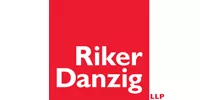CMS Releases Revised No Surprises Act IDR Process Guidance
In the wake of the U.S. District Court for the Eastern District of Texas's February 2022 ruling rejecting the No Surprises Act's independent dispute resolution (“IDR”) regulations issued by the Department of Health and Human Services (“HHS”), the Centers for Medicare & Medicaid Services (“CMS”) has released guidance to “Certified IDR Entities” to direct them in carrying out the arbitration process dictated by the No Surprises Act.
The initial IDR process under the No Surprises Act requires the provider and insurer to each submit a proposed payment amount and explanation to the arbitrator. The arbitrator must then select one of the two proposed payment amounts “taking into account the considerations specified in subparagraph (C)” which includes, among other things, the qualifying payment amount (“QPA”), the experience of the provider, the provider's market share, and the complexity of the service.
In its decision this past February, the Eastern District of Texas determined that nothing in the No Surprises Act statutory language instructs arbitrators to weigh any one factor or circumstance more heavily than the others and that the previous regulatory scheme issued by HHS allowed the QPA to heavily skew the arbitration process in favor of the insurers to the detriment of providers, and would in effect result in providers lowering the rates they presented in order to fall closest to the QPA in order to prevail in the arbitration.
Under CMS's new guidance, in addition to the QPA, the arbitrators are instructed to consider the following:
- The level of training, experience, and quality and outcomes measurements of providers or facilities
- The provider or facility's regional market share
- The acuity of the patient, member or enrollee receiving the service or the complexity of furnishing the service
- The teaching status, case mix and scope of services of the facility or provider
- Demonstration of good faith efforts (or lack thereof) made by the provider or facility or the plan to enter into network agreements and their contracted rates.
HHS Surprise Billing Reporting Portal Now Open
HHS opened its portal for providers and payers to initiate surprise billing disputes under the No Surprises Act. The portal link provides instructions for starting the IDR process following the conclusion of the open negotiation period between the parties in the event that a resolution is not reached. The portal likewise provides a link to an “IDR State List” to locate which states will have processes that apply to payment determinations for the items, services, and parties involved in the dispute.
In addition to general information required to start the IDR process, providers will need to provide the following:
- Information to identify the qualified IDR items or services (and whether they are designated as batched or bundled items or services)
- Dates and location of qualified IDR items or services
- Type of qualified IDR items or services such as emergency services and post-stabilization services
- Codes for corresponding service and place-of-service
- Attestation that qualified IDR items or services are within the scope of the Federal IDR process
- Your preferred Certified IDR Entity.
The content of this article is intended to provide a general guide to the subject matter. Specialist advice should be sought about your specific circumstances.





